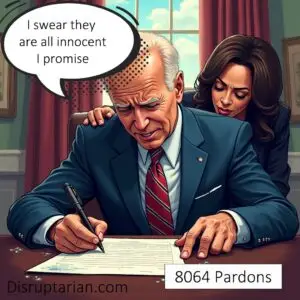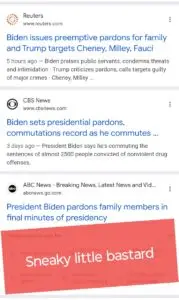Trump’s Strategy for Public Favor
Influence and Engagement in the Public Arena
Donald Trump’s adeptness at shaping public opinion and framing policy discussions is undeniably potent. Throughout his presidency and business career, Trump has developed a singular style characterized by aggressive rhetoric, media savviness, and a polarizing yet charismatic presence. His tactics often cater to populist sentiments, leveraging widespread discontent about the status quo to fortify his image as a political outsider ready to challenge the entrenched establishment. From a libertarian, free-market perspective, Trump’s approach raises interesting questions about the role of presidential influence in economic and political discourse.
Trump often uses public declarations, whether through social media platforms (especially Twitter before his ban) or public speeches, to bypass traditional media gatekeepers and communicate directly with the public. This technique has allowed him to control the narrative, set the media agenda, and mobilize a base of supporters who are deeply skeptical of conventional news sources. This strategy hinges on consistent engagement with supporters, producing a spectacle that dominates news cycles and public conversation.
While this strategy has proven powerful in shaping opinions and influencing public debate, it raises concerns about transparency and the robust discussion necessary for a healthy democracy from a libertarian standpoint. Libertarians traditionally champion minimal government interference in markets and personal lives, advocating for clarity, rationality, and efficiency—all aspects that can suffer in a high-drama, emotionally charged communication environment.
Economic Policies and Market Reactions
Trump’s economic policies, underscored largely by tax cuts, deregulation, and a protectionist stance on trade, perfectly encapsulate his appeal to free-market advocates, at least superficially. His administration’s commitment to reducing the regulatory burden has been welcomed by many businesses, which argue that excessive regulation stifles innovation and growth. However, his trade policies, including tariffs and renegotiating trade deals like NAFTA (now USMCA), reflect a more nationalist approach that clashes with the libertarian ideal of free trade.
Trump’s imposition of tariffs, intended to boost American industries by making foreign products more expensive, contradicts the free-market principle that trade should be without government interference, allowing the most efficient markets to prevail. Such policies can lead to retaliatory tariffs, harming the same industries they purport to protect.
His tax policy, while beneficial in leaving more money in the hands of the earners and boosting economic activity, also must be examined for its long-term impacts on national debt and fiscal responsibility, issues critical to libertarian economic thought. Libertarians argue for a balanced budget and caution against increased national debt, which future generations must bear.
Long-Term Implications and the Role of Government
Looking beyond Trump’s presidency, the long-term implications of his approach to governance and public policy making resonate deeply within the libertarian discourse on the ideal role of government. Trump’s style highlights a broader cultural shift toward viewing the government as an entity that should be deeply involved in solving most societal issues, which is antithetical to libertarian calls for a limited government focused primarily on protecting individual rights, maintaining public order, and engaging in international affairs only to the extent that it protects national security.
The libertarian perspective emphasizes the risks of an overly charismatic leader who can sway public opinion and policy toward greater government intrusion into markets and personal freedoms. While Trump has indeed championed certain policies that align with libertarian ideals, his unpredictable approach and tendency toward authoritarianism in some respects—such as his significant use of executive orders—ring alarm bells for those who favor a more circumscribed, consistent, and transparent executive power.
Conclusion
In summary, Donald Trump’s approach to shaping public opinion and policy making is a complex tale with varied implications for libertarians. His mastery of direct communication has reshaped political engagement, but it also raises questions about the integrity of public discourse. Economically, while some policies resonate with free-market ideals, others veer toward protectionism, suggesting a selective rather than fundamental commitment to free-market principles. The most pressing libertarian concerns revolve around the appropriate scope and scale of government authority, the sanctity of individual freedoms, and the necessity of rational, open debate in policymaking.
Trump’s legacy as a populist leader who champions certain libertarian-friendly policies while challenging others underscores the need for continued vigilance and engagement from those who advocate for limited government and maximal individual liberties.
FAQs
Q1: How do libertarians view Trump’s tax cuts?
A1: Libertarians generally view tax cuts favorably as they leave more resources in the hands of individuals and businesses, thereby fostering economic activity and freedom. However, concerns remain about how these tax cuts impact national debt and fiscal responsibility.
Q2: What is the libertarian stance on Trump’s trade policies?
A2: While Trump’s goal of protecting American industries aligns superficially with nationalist sentiments, his method of imposing tariffs conflicts with the libertarian advocacy for free trade, which posits that government should not interfere in market transactions.
Q3: Do libertarians support Trump’s use of executive orders?
A3: Libertarians are typically skeptical of the heavy use of executive orders, viewing them as bypassing the legislative process and concentrating too much power in the executive branch, regardless of who is president.
For more specific discussions related to Trump’s executive orders, visit this RSS Feed: Trump’s Executive Orders
#Trumps #Public #Opinion #Play
Advertisement:



